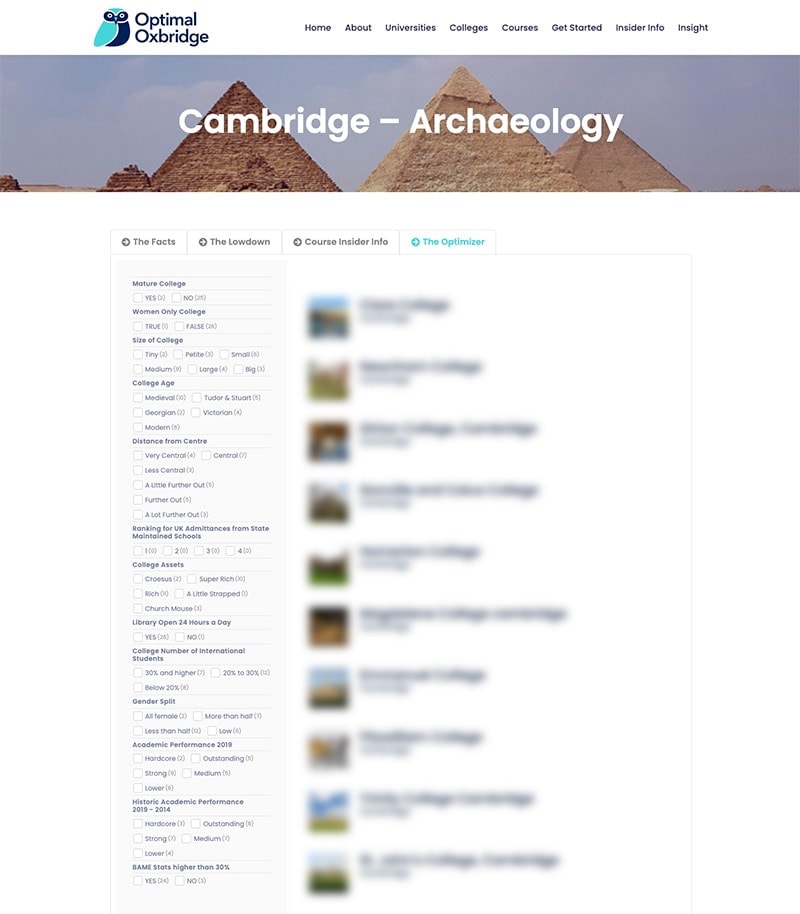Subscribe for full access to insider info and the optimizer.
Unlock access to the Optimizer and Insider Info
Let our optimizer help you find your college match faster. We’ll screen out the bad fits so that you can review the schools you’ll like best. Who knows? You might find a college you never knew existed.
The Facts
UCAS Code:
H810
Standard Requirements:
A levels| A*A*A
IB | 40-42, 776 in HL
For other qualifications, check the Cambridge University website.
Required Subjects:
All colleges require Chemistry and Mathematics. Some colleges also require Physics and/or a third science/mathematics subject. Peterhouse tends to require STEP 2.
Advisable Subjects:
None stated by the university.
None stated by the university.
Not normally required
42 (In 2021, Chemical Engineering via Engineering had an 11% acceptance rate and Chemical Engineering via Natural Sciences had a 13% acceptance rate)

The Lowdown
This degree is focused on the underlying scientific theories and fundamentals behind Chemical Engineering and Biotechnology. A key selling point of the Cambridge course is that it is directly supported by a group of industrial organisations. Not only does this ensure a real-world influence on university tuition, but this connection also opens up the chance for internship opportunities.
The course is a wonderful one, and always tops The Times and the Guardian league tables for the best chemical engineering course in the UK. You will be taught mostly via lectures and supervisions, with additional 2-week engineering projects.
In first year, you will take courses in chemical engineering and cell biology. You will also study modules in Chemistry and Mathematics from the from the Natural Sciences Tripos. In your second year, you take a variety of mandatory topics, covering biotech and chemical engineering.
In your third year, you cover further chemical engineering topics and a course in biotechnology that looks at the applications of biotech. In Trinity term of your third year. you will be part of a group design project, providing you with vital hands-on experience of applying your knowledge to achieve a team goal.
If you choose to take the four-year course (and almost everyone does), you will have the opportunity to select your own topics from a list of optional papers (which may feature subjects such as pharmaceuticals, bionanotechnology or biophysics). You will also complete a research project, a paper on environmental impact, and advanced design. After graduation, Chemical Engineers have access to a multitude of well-paid career paths. This might include roles within the discipline (such as field engineering, research, or management), or in a new area such as finance, or postgraduate study. Furthermore, the four-year version of the Chemical Engineering course is ICE accredited so that graduates can apply for Chartered Engineer status (after acquiring relevant experience) without the need for additional exams.
Unlock Insider Info
Get insider intel about how to increase your chances of being offered a place, plus access interviews tips and special questions.
The Optimizer
Unlock access to the optimizer
Let our optimizer help you find your college match faster. We’ll screen out the bad fits so that you can review the schools you’ll like best. Who knows? You might find a college you never knew existed.

